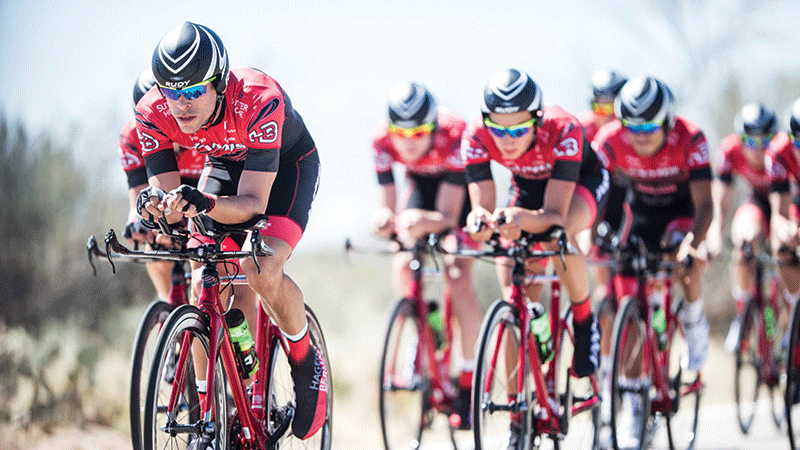
The manufacturing process we pioneered in 2009 and once featured solely on our Xenith SL and Team frames has trickled down and is now a mainstay on all our carbon fiber models (excepting those featuring Near Net SPV). Here’s a quick primer
on how this works and why it matters.
Once we’ve selected material and resin and determined our lay-up schedule, compaction is where it’s at as far as carbon fiber structural integrity is concerned. If the interior design has constrictions that bind bladders or the bladder material doesn’t sufficiently sustain air pressure, fiber wash or wrinkling in the fiber and pooling of resin is likely. While this is not unusual in most carbon fiber frames today, it represents unnecessary additional weight and a possible stress riser.
That’s why four years ago we took monocoque manufacturing methods to the next level with our Near Net Molding technology. NNM utilizes both removable silicone pre-forms at the main stress points of the frame (head tube, BB, seat tube/top tube) and bladder-wrapped polystyrene cores in the balance of the frame that recede as the oven heats and the bladders are pressurized.
This process produces an interior that is nearly as smooth and pristine as the exterior, what we call “near net”. With every gram of excess resin squeezed out, every length of fiber flattened and aligned, you’re assured the lightest, stiffest, strongest possible frame.
All our frames and forks are tested continually to meet or exceed (in some cases, well exceed) EN standards 14764, 14765, 14766 and 14781. We conduct these tests at our frame manufacturing facilities, but we also use EN accredited testing laboratories such as Intertek and SGS to verify the results of our own tests. If these tests aren’t telling us everything we want to know about our bikes, we increase the loads and cycles, or we determine another way to test. Where current hydraulic testing machines, jigs and hardware aren’t up to the task of emulating some of the forces and impacts our bikes might be subject to, we’ve designed our own.
We relentlessly cycle test for fatigue from pedaling and torsional forces on every single frame size, with deflection tests for stiffness at every point of the frame. Brutal impact tests with massive weights dropped on fixed frames or forks are performed. Then reversed, with weights attached to the frame, the frame hoisted to a given height depending upon product type, then released.
This destructive testing is enormously instructive and important. And it is in continual process. But it’s our ongoing non-destructive testing of frames and forks fresh off the factory floor that’s just as vital.
For our carbon fiber frames, EVERY frame is weighed to make sure it’s neither resin rich nor resin deficient. We also measure the stiffness of each frame in 6 critical areas as a check on lay-up production. Each deflection test must fall within 5% of the standards our machine and field-testing have established. This weighing and stiffness deflection testing guarantees every single frame we produce meets all Jamis manufacturing protocol and will deliver the ride qualities we defined and demand.